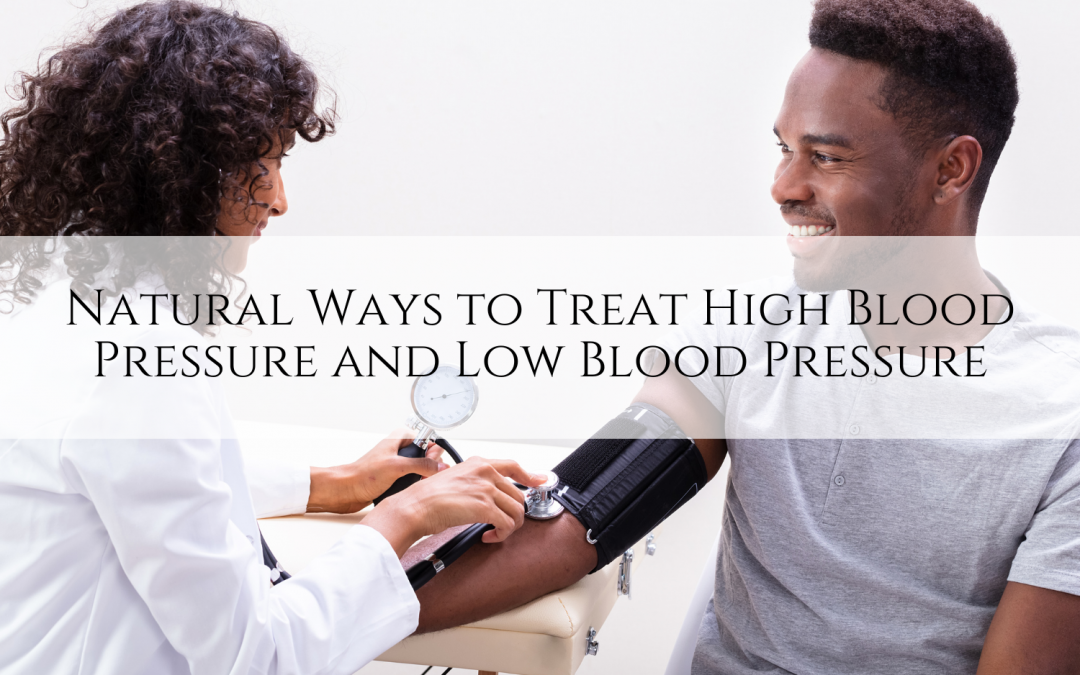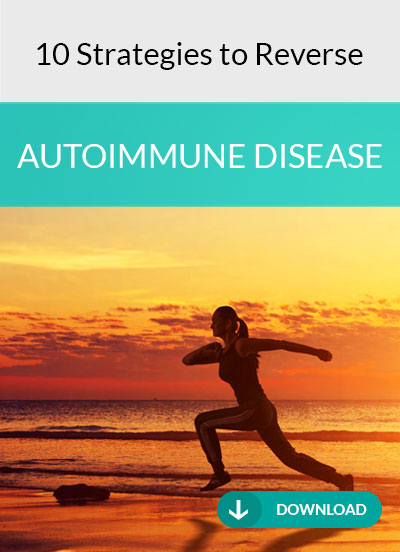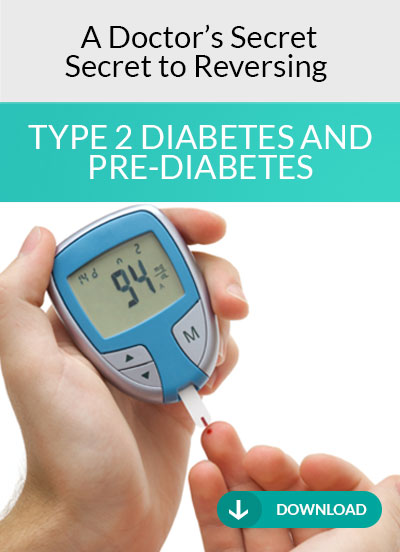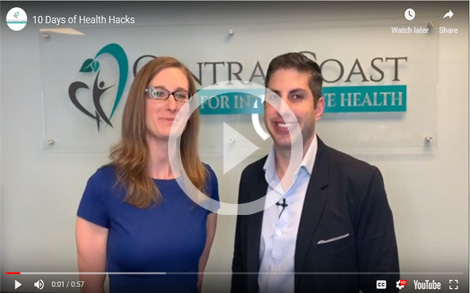A Functional Medicine Approach to High and Low Blood Pressure
When many people worry about blood pressure, they often think about hypertension. Although high blood pressure is a concern for many patients, a good number of people, especially those with autoimmune diseases, actually suffer from low blood pressure. That’s why in this blog post I’ll not only address natural ways of lowering blood pressure, but also how to raise low blood pressure.
Hypertension by the Numbers
High blood pressure—also called hypertension—is when the force of the blood pressure pushing against the walls of your blood vessels is too high. The beating heart creates pressure that moves the blood through arteries, veins, and capillaries.
As blood moves out of the heart and into the arteries, it creates systolic pressure. This is the number on the top of a blood pressure reading. As the heart pauses between beats, it creates a force known as diastolic pressure—the lower number on a blood pressure reading. Doctors consider a person to have high blood pressure when measurements are 130/80 or above.
High Blood Pressure Symptoms
High blood pressure is known as the silent killer because often there are no symptoms. Sometimes, a nose bleed or sexual dysfunction can be symptoms of hypertension.
Over time, high blood pressure often causes damage to the heart and kidneys and can lead to a heart attack or stroke.
Causes for High Blood Pressure
High blood pressure causes can include many risk factors that can vary from person to person but often include:
- Blood sugar problems
- Cardiovascular inflammation
- Chronic stress and cortisol imbalances
- Insomnia or sleep apnea
- Insulin resistance
- Kidney dysfunction
- Low magnesium and electrolytes
Many of these risk factors, including blood sugar, cardiovascular problems, insulin resistance, and kidney dysfunction are made worse by the Standard American Diet (SAD), which includes a lot of sugar and unhealthy fats.
High blood sugar is a factor I often test for in my patients with hypertension. High blood glucose can damage the blood vessels and kidneys, which can contribute to hypertension. Insulin resistance, a condition where the body starts to ignore the blood-sugar-lowering signals of insulin, also can trigger high blood pressure over time.
I recommend getting your own blood pressure cuff in order to measure your blood pressure at different times of day and during different circumstances. In this way, you can identify whether the high blood pressure is linked to trends such as stress, sleep problems, and blood sugar issues in order to find out the root cause. But you want to watch the patterns rather than the actual numbers.
Can Salt Raise Blood Pressure?
People often think that salt is the villain when it comes to hypertension. However, this concept is a salt and high blood pressure myth. In reality, salt does not trigger blood pressure rises in every patient, and even in cases where salt is a factor, it’s not the only factor.
It’s all about moderation—too much of a good thing is not a good thing. By using different types of sea salt such as pink Himalayan salt and Dead Sea salt without overdoing one type, it can expose you to different kinds and amounts of minerals.
Can Dehydration Cause Higher Blood Pressure?
Not getting enough water or fluids is associated with both high blood pressure and chronic kidney disease. My general rule of thumb is for patients to drink half their body weight in ounces of water per day. You want to stay hydrated but consume water and other fluids in moderation.
Natural Ways of Lowering Blood Pressure
In my clinical practice, I find that a number of approaches work well in patients with high blood pressure. First, I address the root causes that I mentioned earlier, such as blood sugar and insulin issues, dehydration, and stress.
Mild to moderate exercise is another important strategy for lowering blood pressure. You want to start out slow and only exercise to tolerance—don’t push yourself too hard.
Dietary approaches also are important. Particularly for people with blood sugar and insulin problems, I suggest a low-sugar, low-glycemic diet. Food sensitivities can lead to inflammation throughout the body. Consequently, I will often test patients for food sensitivities and start them on an elimination diet.
Depending on the patient’s situation, I also recommend all or some of the following supplements:
- Electrolytes, including magnesium, are often deficient in people with high blood pressure. People with high blood pressure may have genetic defects in the way their bodies use magnesium. That could explain why taking oral magnesium supplements act as a natural calcium channel blocker, increases nitric oxide, and improves the health of blood vessels. I like Reacted Magnesium and Potassium (Ortho Molecular Products) which is a combination of magnesium and potassium.
- L-Citrulline (CitraNOX from Ortho Molecular Products) supports healthy levels of nitric oxide, a molecule that widens blood vessels and promotes normal blood pressure. Nitric oxide is made in the body from dietary nitrate found in leafy green vegetables, and studies have shown nitrate can lower blood pressure.
- Grape seed extract is a plant-derived substance studied for its ability to lower blood pressure and relieve stress.
- HTN Supreme (Designs for Health) is a formula that contains grape seed extract plus bonito peptides derived from fish. In Japan, they eat a lot of bonito peptides, and the Japanese are known to have excellent cardiovascular health.
- Vessel Forte (Designs for Health) supports blood vessel health.
What Is Low Blood Pressure?
According to the Mayo Clinic, low blood pressure is considered 90/60 or lower. But what’s low for one person may be high for someone else. The important thing to pay attention to with low blood pressure are symptoms. Some people with 100/60 don’t feel anything. However, other people are at 110 systolic and they feel lightheaded or have other symptoms.
A lot of my autoimmune patients have blood pressure that’s too low. If this is the case, their fatigue and some of their other symptoms often are connected to their drop in blood pressure.
Low Blood Pressure Symptoms
If your blood pressure is too low, you may have one or more of the following symptoms of low blood pressure:
- Blurred vision
- Cold, clammy, pale skin
- Depression
- Dizziness
- Fainting
- Fatigue
- Feeling light-headed
- Lack of concentration
- Nausea
- Rapid, shallow breathing
Low Blood Pressure Causes
In my clinical practice, I’ve found that the common root causes of low blood pressure include:
- Adrenal dysfunction
- Dehydration
- Electrolyte imbalance
- Imbalanced blood sugar
Adrenal problems can cause low blood pressure due to the cortisol-aldosterone connection. The same adrenal pathway that makes the stress hormone cortisol also makes aldosterone. If the body is under a lot of stress, it’s pushed into making too much cortisol and not enough aldosterone. This is a problem because aldosterone influences electrolyte balance and aldosterone deficiency throws electrolytes out of whack.
Although imbalanced blood sugar is more known for its role in high blood pressure, I’ve found in clinical practice that many patients with low blood pressure also have blood sugar or insulin resistance issues.
Low Blood Pressure: How to Treat
If you have low blood pressure and wonder what to do about it, here are some suggestions that have worked in my clinic practice.
Electrolytes, Salt, and Low Blood Pressure
First, eat more salt and sodium. Most of the time, my low blood pressure patients do well when they increase their salt intake. A word of caution though for some people with autoimmunity, salt can increase autoimmune pain in certain individuals.
One way to boost salt intake and electrolytes is to use the dietary supplement LMNT, which is high in sodium. I love it for people with low blood pressure. Two other electrolyte supplements that have less sodium are Ultima Replenisher and Liquid IV.
Get Moving
In addition, exercise is important. Just don’t overdo it and start out slow. Figure out how much exercise makes you feel good and which type of exercise makes you feel the best. Some people tolerate walking while others do well on a high-intensity interval workout. It’s important to feel good after exercise. You don’t want to feel exhausted or need days for recovery.
Avoid Dehydration
Drinking enough water or fluids—half your body weight in ounces of water per day—can relieve dehydration and raise blood pressure that’s too low.
Soothe the Adrenals
Last, although certainly not least, is to work with a functional medicine doctor to diagnose and treat adrenal dysfunction. Treating the adrenals can include stress relief strategies like meditation or yoga, as well as adrenal support supplements.
Natural Ways To Raise and Lower Blood Pressure
If you have either low blood pressure or hypertension, working with a functional medicine provider is the best way to resolve the problem. Regardless of whether your blood pressure is low or high, it’s going to take some detective work and ordering the proper tests to get at the root cause of the problem. If you have high blood pressure, it’s dangerous to stop taking hypertensive meds without being under the guidance of a doctor.
I invite you to get in touch with the Caplan Health Institute today, so that we can address all the factors that could be causing your blood pressure issues. Whether you have low or high blood pressure, we can get the numbers moving in the right direction.
Board Certified in Integrative Medicine
Certified Functional Medicine Practitioner
Institute for Functional Medicine Certified Practitioner






